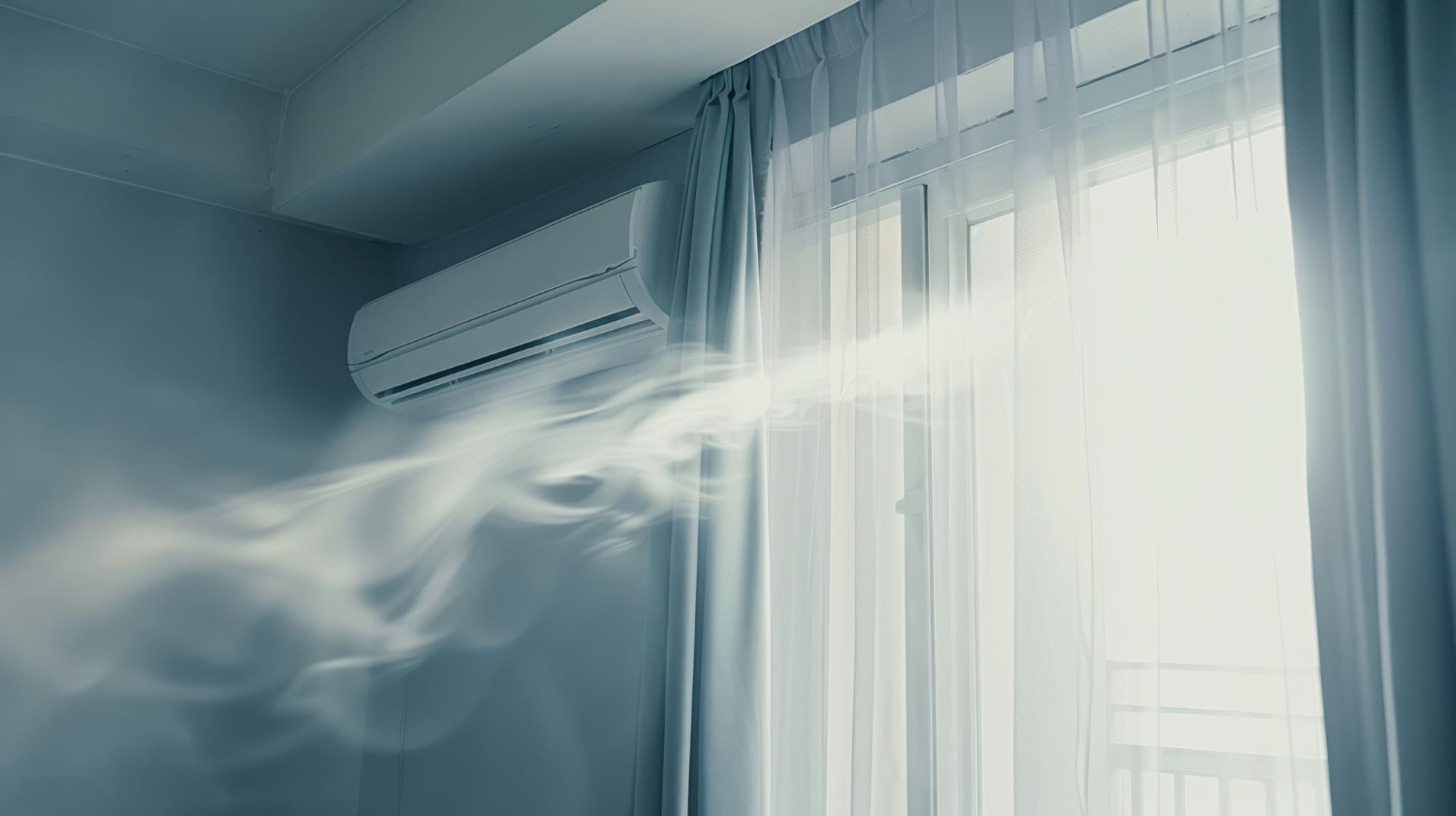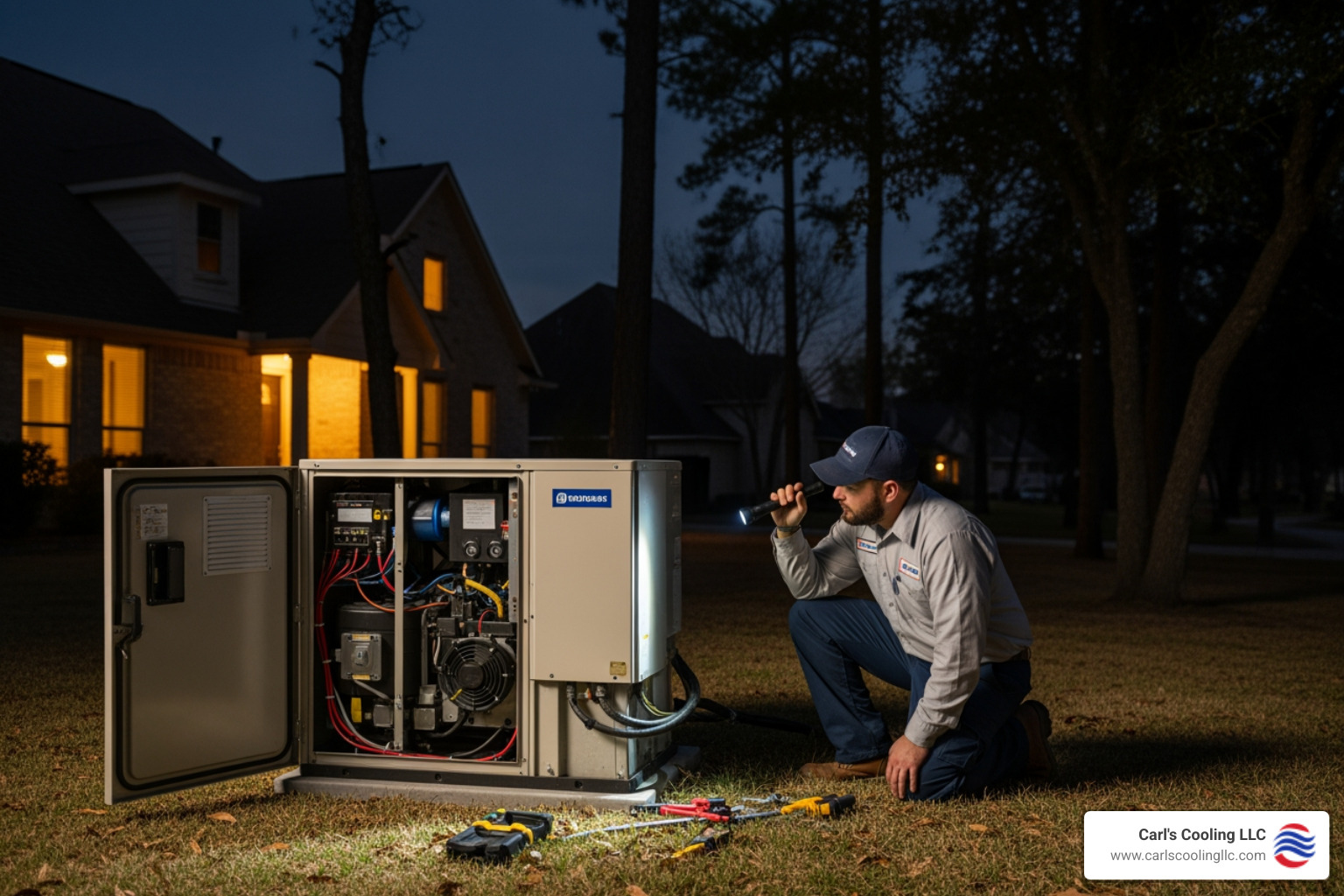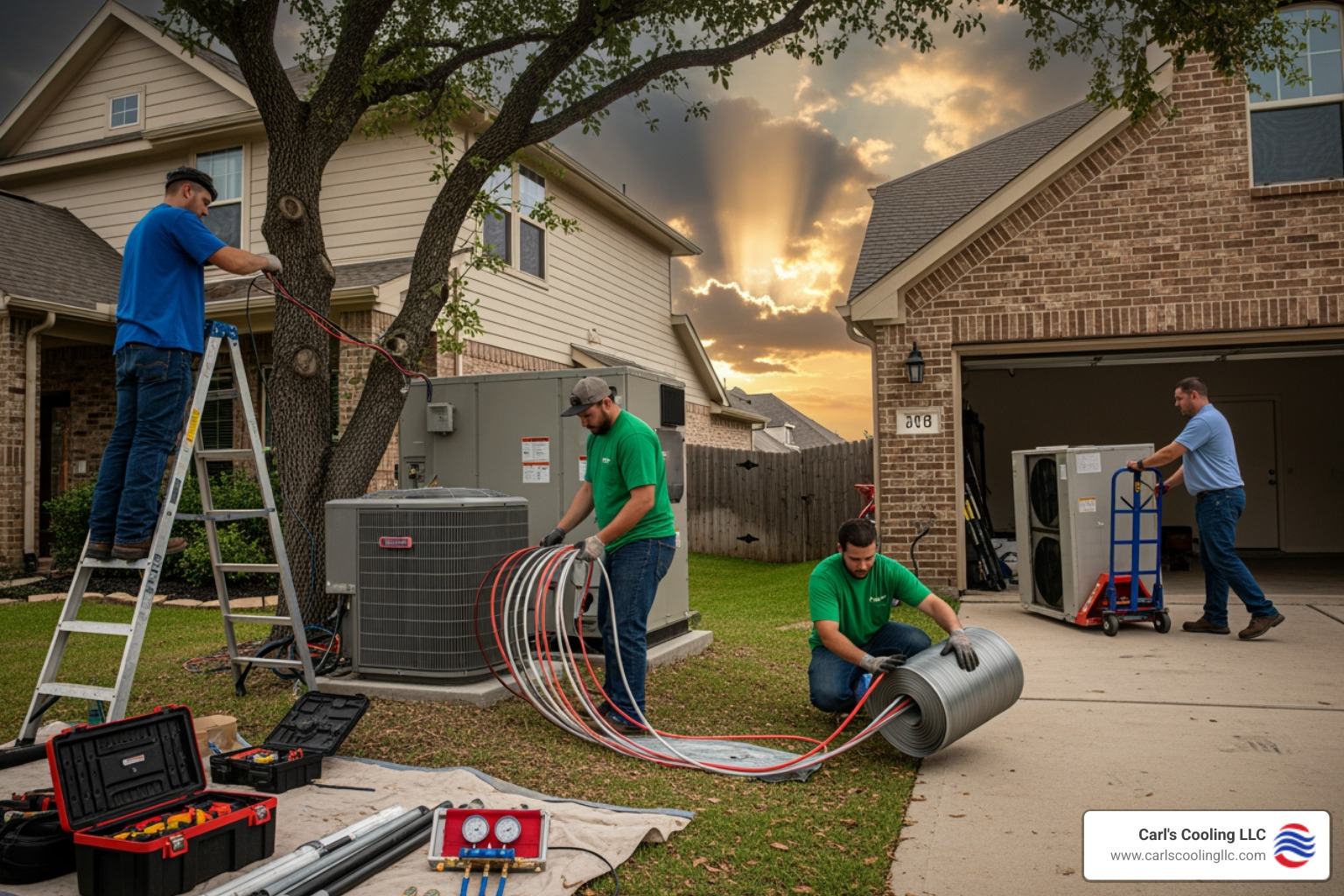As temperatures stay high through August in Spring, AC units work harder than ever to keep homes comfortable. When your system starts blowing air that smells strange, it does not just affect comfort—it signals that something might be wrong. AC odors are not just unpleasant. They often point to system issues that require attention.
Whether it is a musty smell coming through the vents or an odd burning scent, odors can indicate anything from mold growth to electrical problems. Ignoring these could lead to bigger repairs and reduced indoor air quality over time. If your home in Spring has taken on an unexpected smell when the AC turns on, it may be time to look deeper into what is happening inside your system.
Common Causes of AC Odors
There are a few reasons why an air conditioning system might start to emit unwanted smells. Understanding where those odors come from helps explain why they cannot be ignored.
Here are the most common sources:
1. Dust and Debris
Dust can build up in the ducts, filters, or internal parts of the system, especially if routine maintenance has not happened for a while. When the system turns on, that dust heats up slightly as air moves across components, creating a dusty or stale smell.
2. Mold or Mildew
This is one of the most common causes, especially in humid climates. Moisture left inside the ducts or coils provides a perfect environment for mold and mildew. When the AC runs, this buildup spreads through the air, causing a musty odor throughout the house.
3. Overheating Components
A system that produces a burning smell could have wiring or motor parts overheating. This might come from shorted wires, worn connections, or failing electrical components. These need to be checked by a professional immediately to avoid damage or safety risks.
4. Water Drainage Problems
Drain pans and lines in your AC carry away condensation, but if they get clogged or backed up, stagnant water sits for a long time. That sitting water starts to smell and can also cause mold growth in other parts of the unit.
For example, a homeowner in Spring might notice that every time they turn the thermostat down, a sour or musty smell fills the living room. This usually means water is not draining like it should, creating the perfect space for mold growth just behind the vents.
Ignoring strange smells will not make them disappear. If vents are sending out air that smells off, something in the system is likely causing it. Professional inspection and repair catch those issues early, helping keep your indoor air fresh and your cooling system in good condition.
Solutions for Eliminating AC Odors
Once odors start coming from your AC, the best move is to stop them at the source. That usually means working through a few key parts of the system to fix what has gone wrong. In most cases, catching it early makes it easier to resolve and much less expensive in the long run.
Here are the steps our technicians take during odor-related service calls:
- Inspect and change the air filter. A clogged filter holds dust, pollen, and moisture, all of which can create strong smells. Swapping it out with a clean one can make a big difference.
- Clear out the AC condensate drain. Drain lines can back up or get clogged with algae or dirt. When that happens, water pools and starts to rot, giving off musty odors. Our technicians can safely flush the line to get things flowing again.
- Clean the evaporator coils. These coils collect condensation as the AC runs. With time, dirt and moisture stick together and lead to mildew inside the unit. Cleaning the coils keeps airflow clean and reduces smells caused by microbial buildup.
- Examine the ductwork. Leaky, dusty, or moldy ducts spread odors throughout the home. If the source of the smell sits inside the duct system, targeted cleaning and sealing can help stop it from spreading further.
Each step solves a potential part of the odor problem. If more than one issue is happening at once, which is common during late summer in Spring, then a complete inspection is the best way to fully clear out the smells.
Why Professional AC Repair Makes a Difference
When dealing with persistent smells or recurring AC problems, having trained help can keep things simple. Our technicians address deeper sources of odors that most homeowners will not be able to catch just by checking vents or filters.
Smells linked to electrical problems, for example, often involve wiring, capacitors, or motor issues that only trained professionals should handle. These are not just performance issues. They become safety concerns if left unattended. A burning scent from your unit is not something that goes away on its own. It almost always points to damage or a part nearing the end of its life.
Long-term, having a maintenance plan lowers the chance these odors will return. Routine services help spot conditions where moisture, mold, or debris are most likely to build up again. That means fewer surprises down the road and better air quality indoors.
Keeping Your AC Odor-Free All Year
AC systems need regular care, even when no problems are noticeable. Smells typically do not show up overnight. They build slowly. Staying ahead of them through routine upkeep helps keep them from making an appearance in the first place.
Some preventive tips include:
- Replacing your air filters every 1 to 3 months, depending on system usage
- Scheduling seasonal maintenance at the start of the cooling season
- Making sure drain lines are checked and cleared when needed
- Keeping indoor vents clean and unblocked to allow airflow across the system
Homes in Spring face long cooling seasons, with high humidity during parts of the year. These are perfect conditions for odors to develop through moisture buildup. Regular inspections and maintenance during peak seasons will go a long way toward stopping smells before they take hold.
Consistent maintenance from trusted technicians keeps your system clean and working the way it should. When smells are present, quick action matters. If left unchecked, odors usually point to something deeper than just a dirty filter, and the sooner those problems are handled, the simpler the fix tends to be.
When Strange Smells Become a Recurring Issue
If odors keep returning even after filter changes or basic maintenance, it typically means the issue was not fully resolved. That is when professional repair becomes more than just helpful. It becomes necessary.
Our professionals do not just fix the symptoms. They investigate root causes. Whether that is a faulty electrical component, mold hidden in the coils, or improper drainage, full-service repair helps make sure the problem disappears for good.
Comfort should not come with the smell of mildew or burnt dust. For many homeowners in Spring, reliable AC operation also means clean, fresh air every time the system turns on. Smells might seem small at first, but they often point to conditions that can affect how your system works and how healthy your home feels. Keeping odors away is about more than comfort. It is part of keeping your AC running the right way.
For dependable AC repair in Spring that eliminates persistent odors and ensures reliable system performance, trust Carl's Quality Cooling and Heating LLC to keep your home comfortable all season long. For a quick estimate or to book a service visit, please contact us today.






